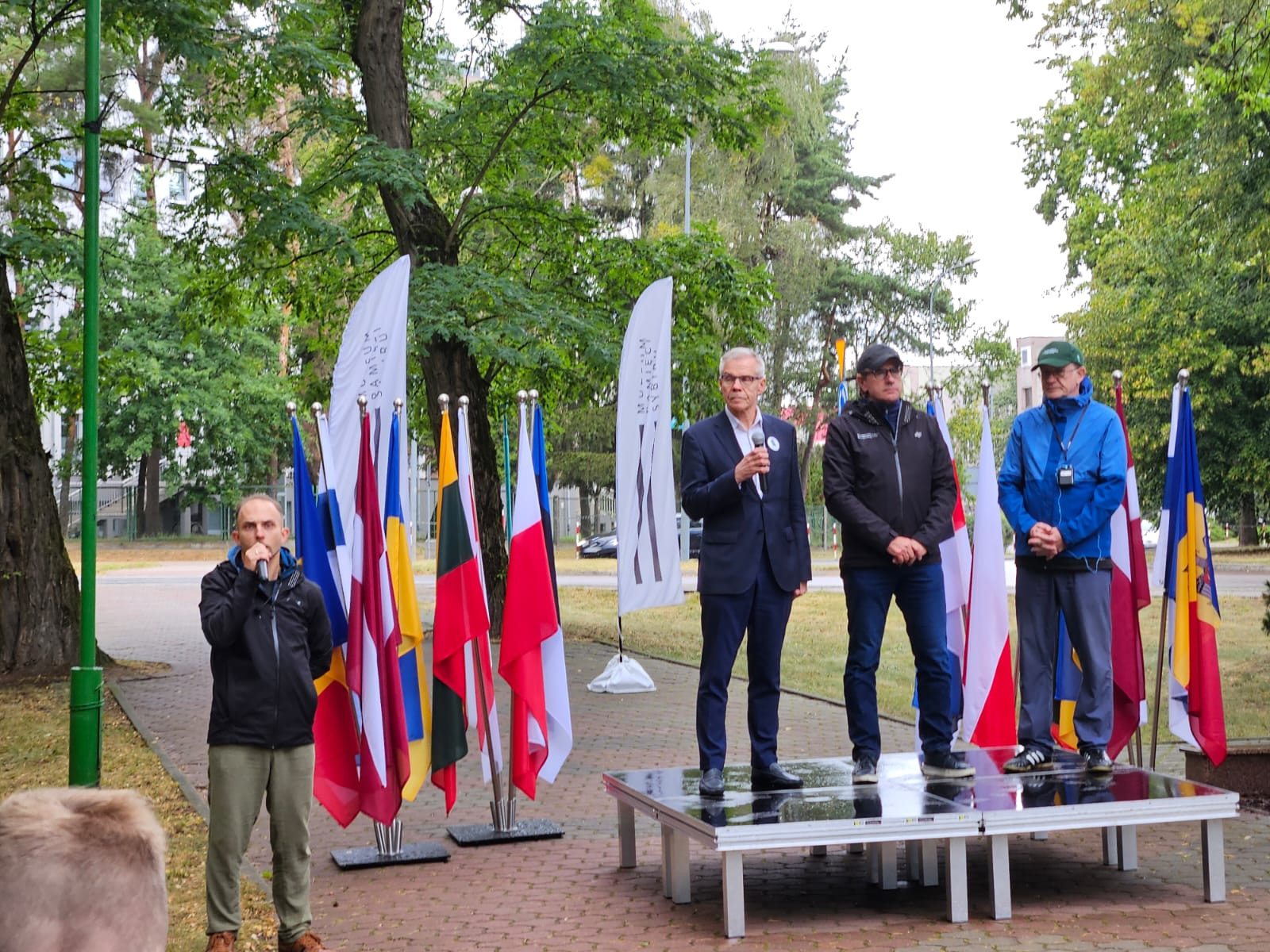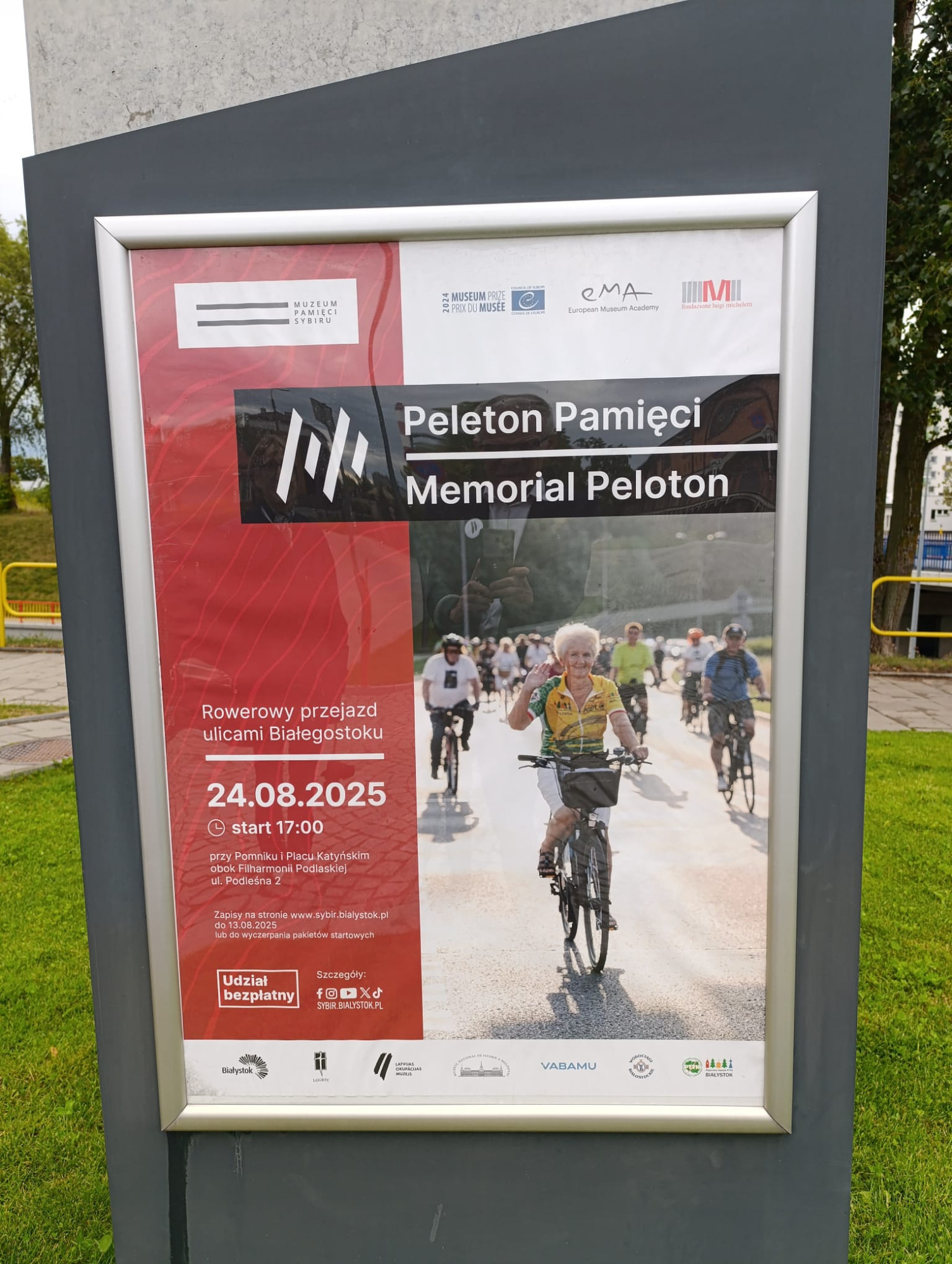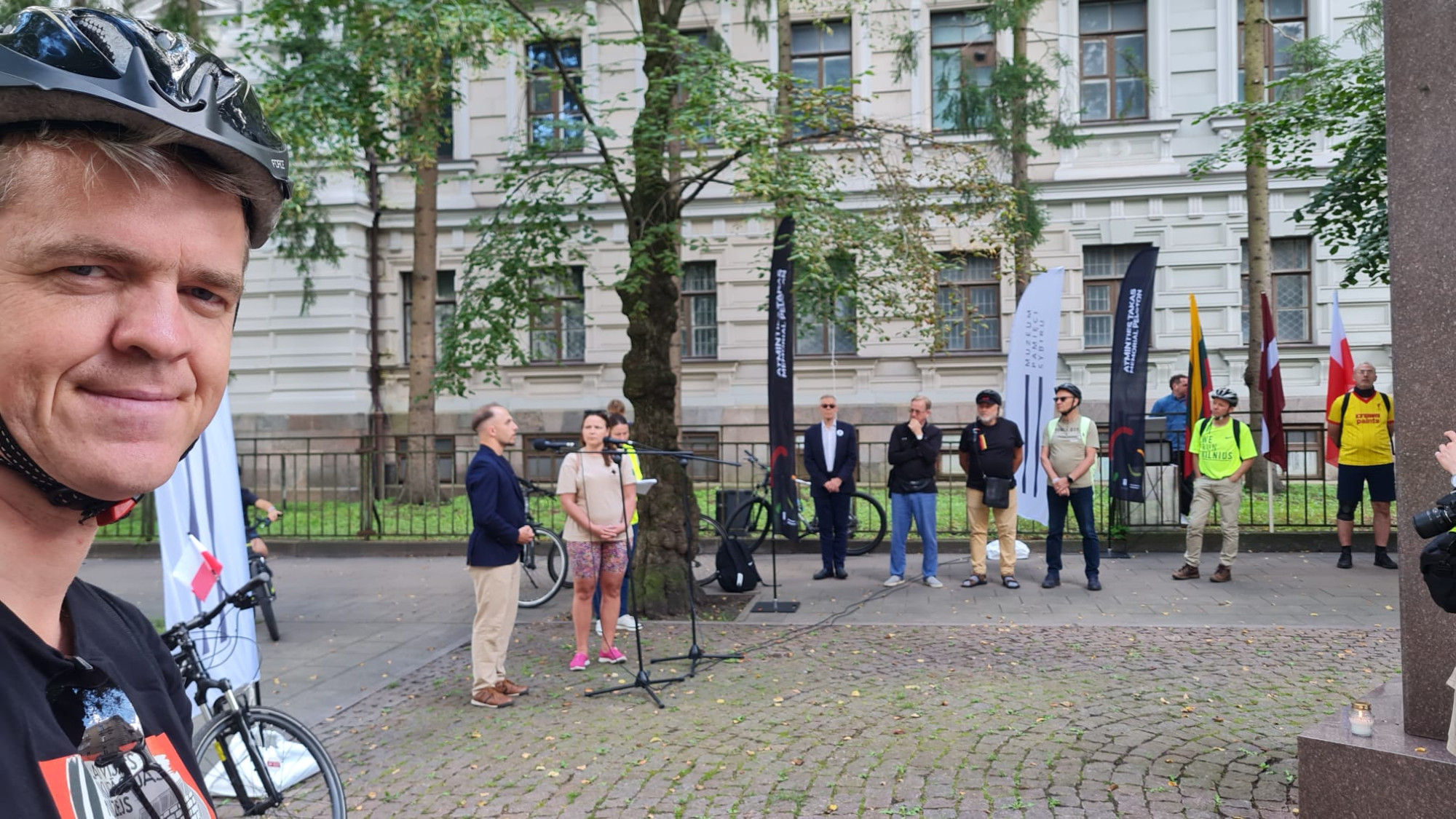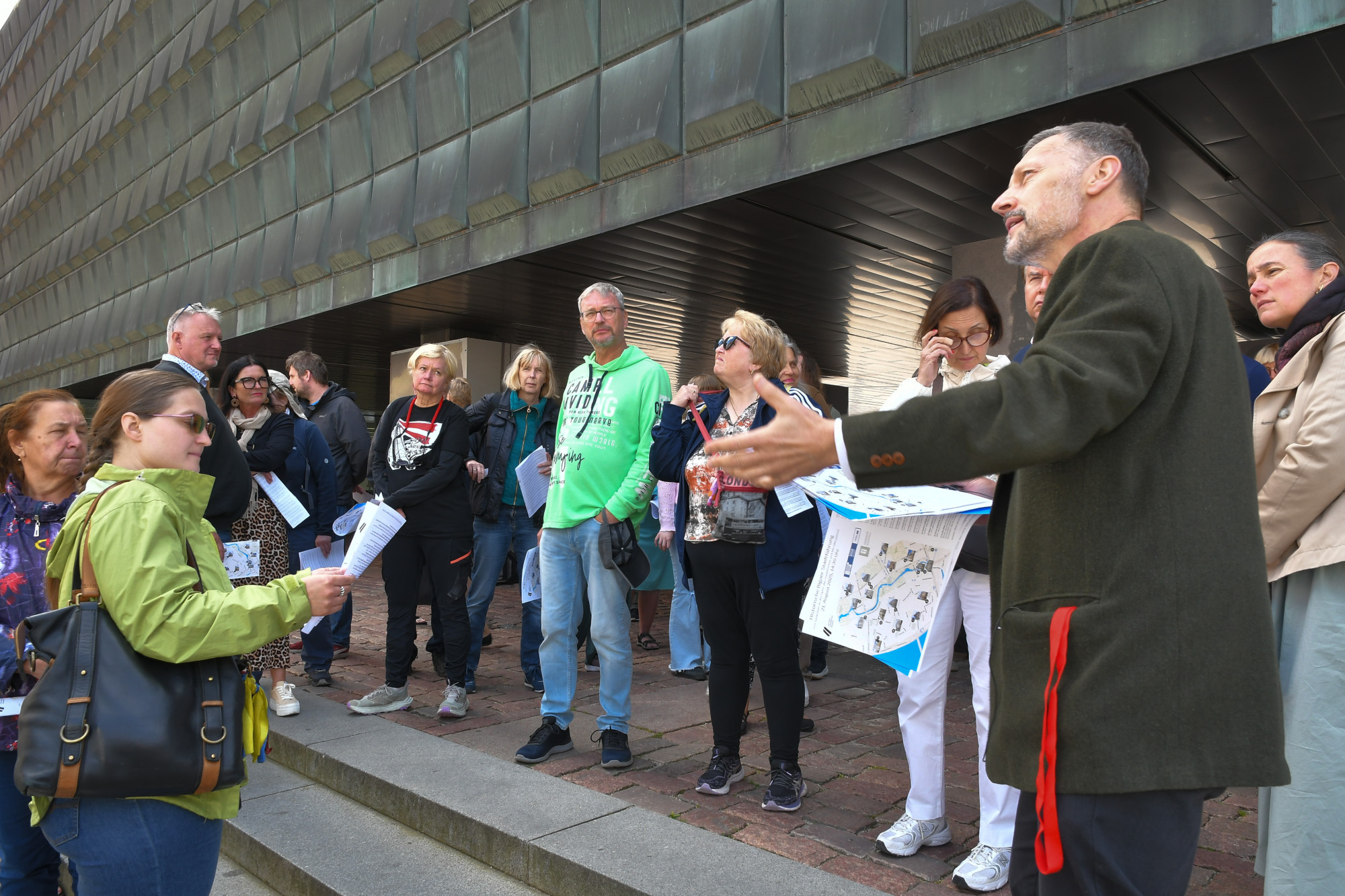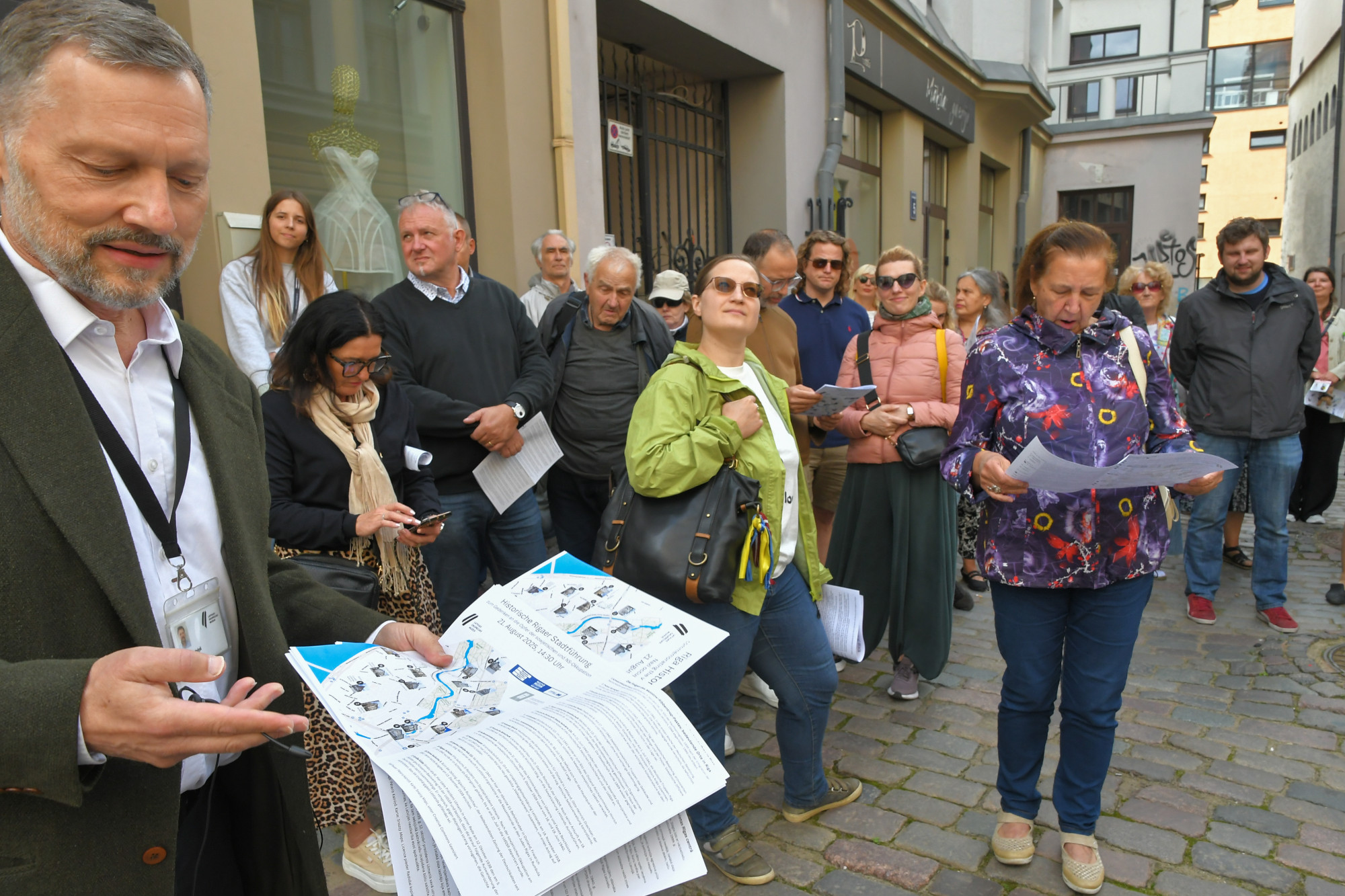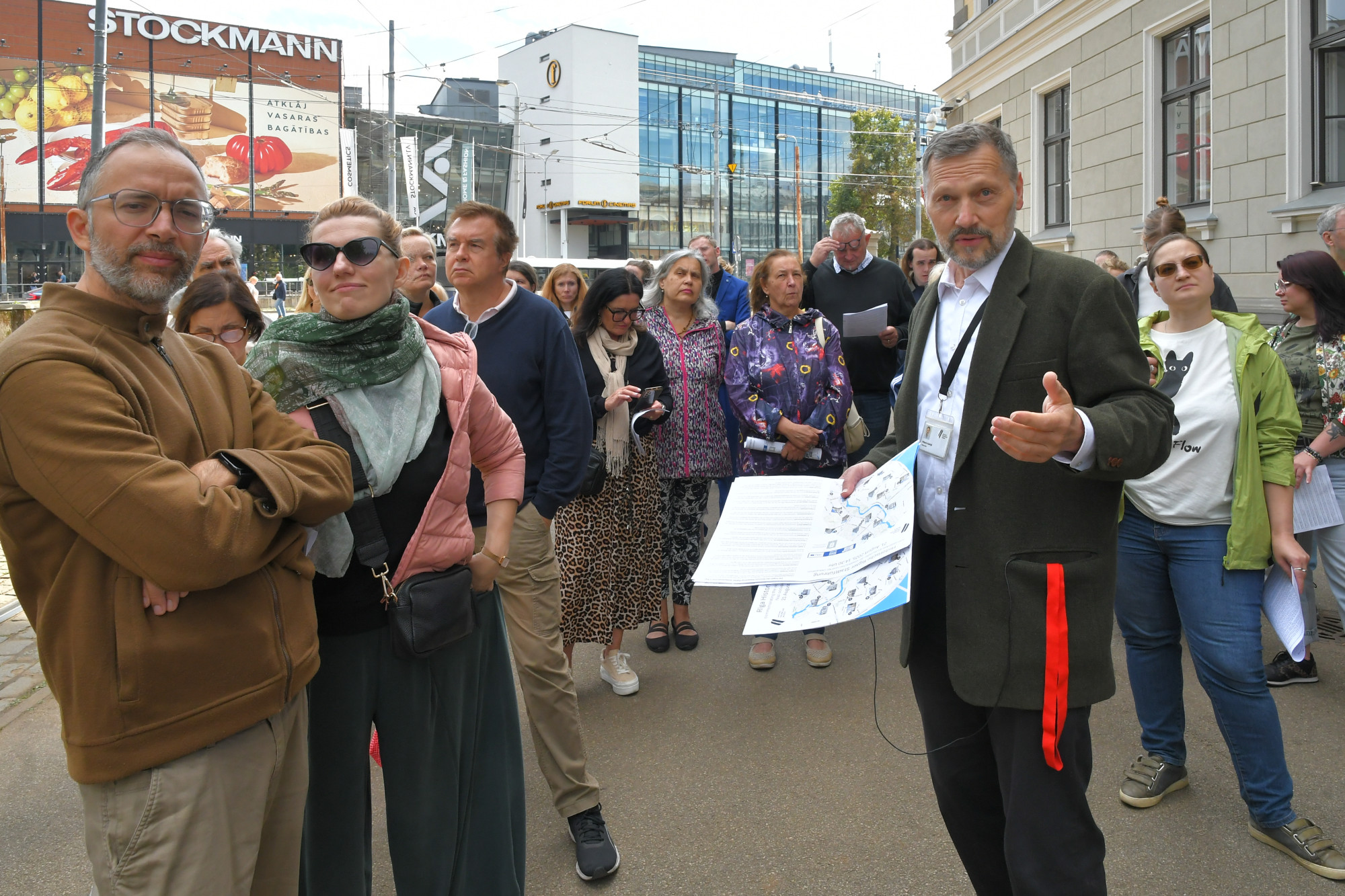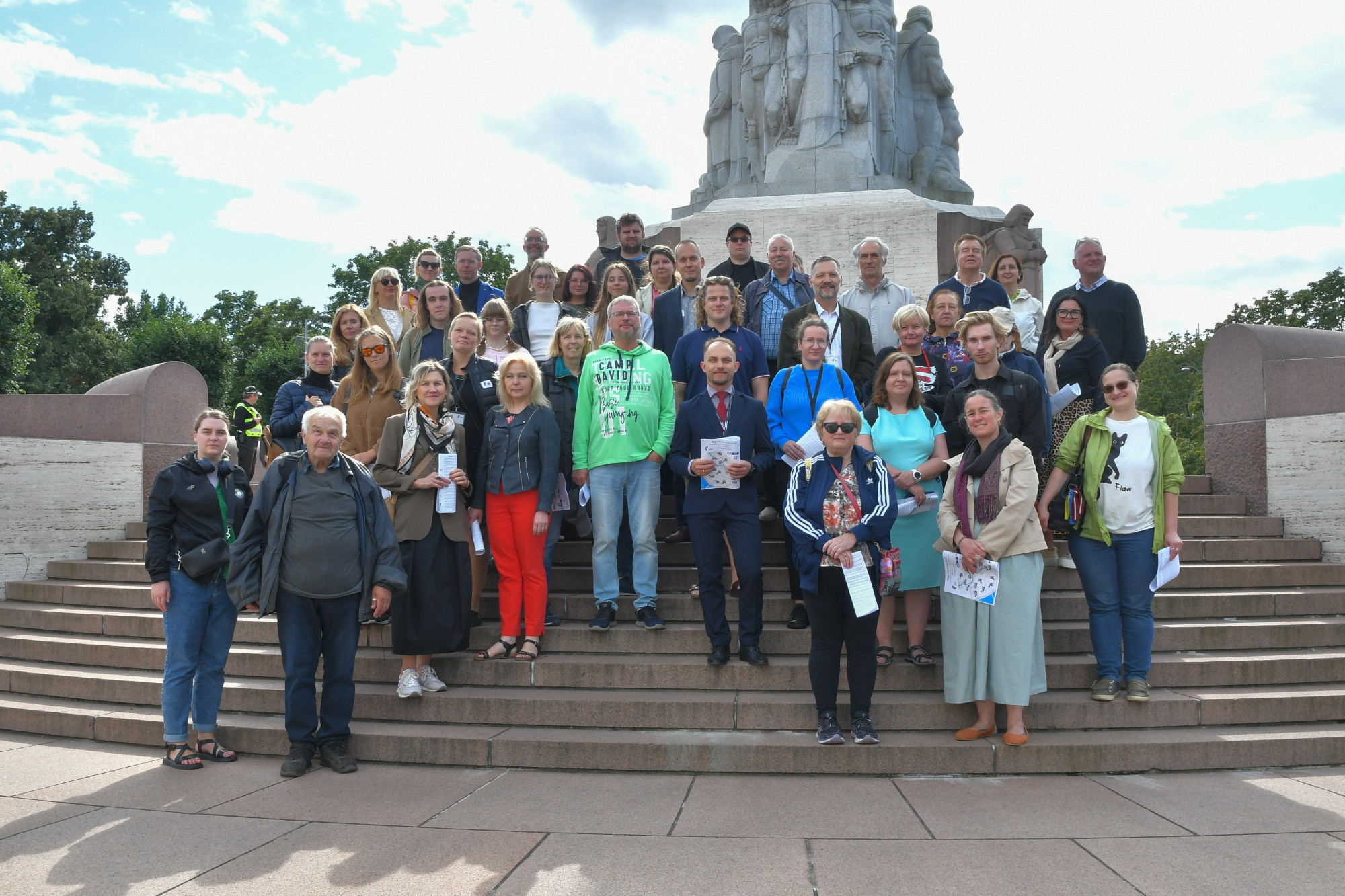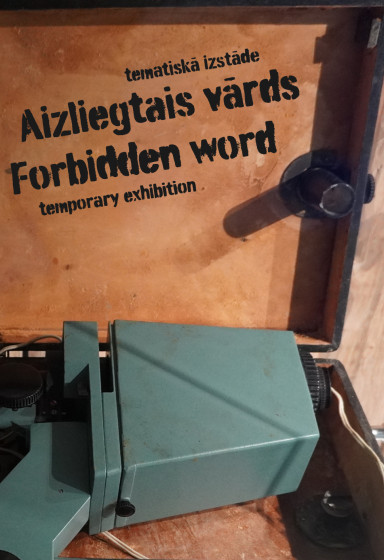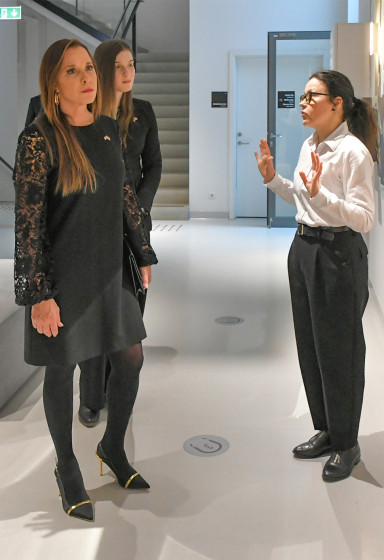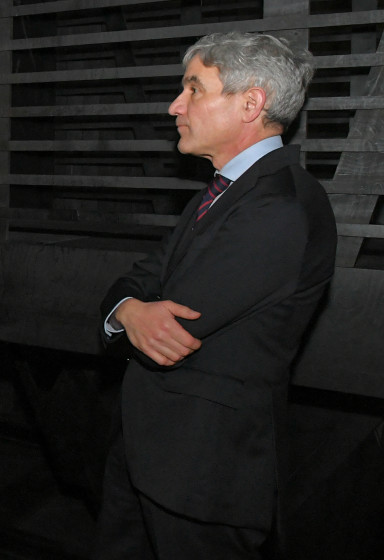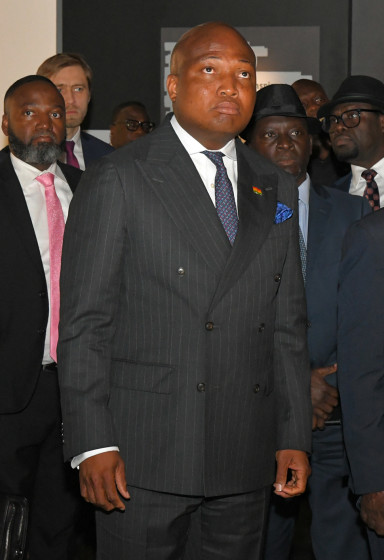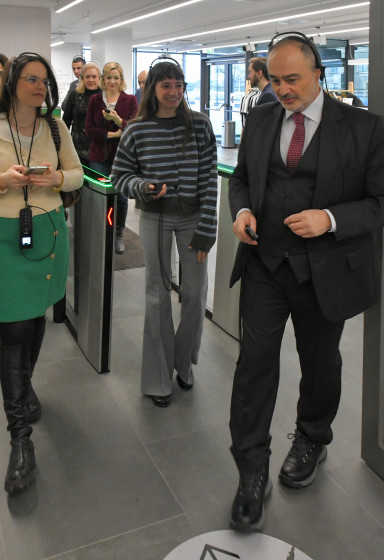Donate to Museum
Each donation helps to ensure the Museum's activities, allowing it to function and provide information for people from all over the world.
The Museum is grateful to each donor and invites everyone to contribute.
Commemoration of the Molotov-Ribbentrop pact in Latvia, Vilnius and Poland
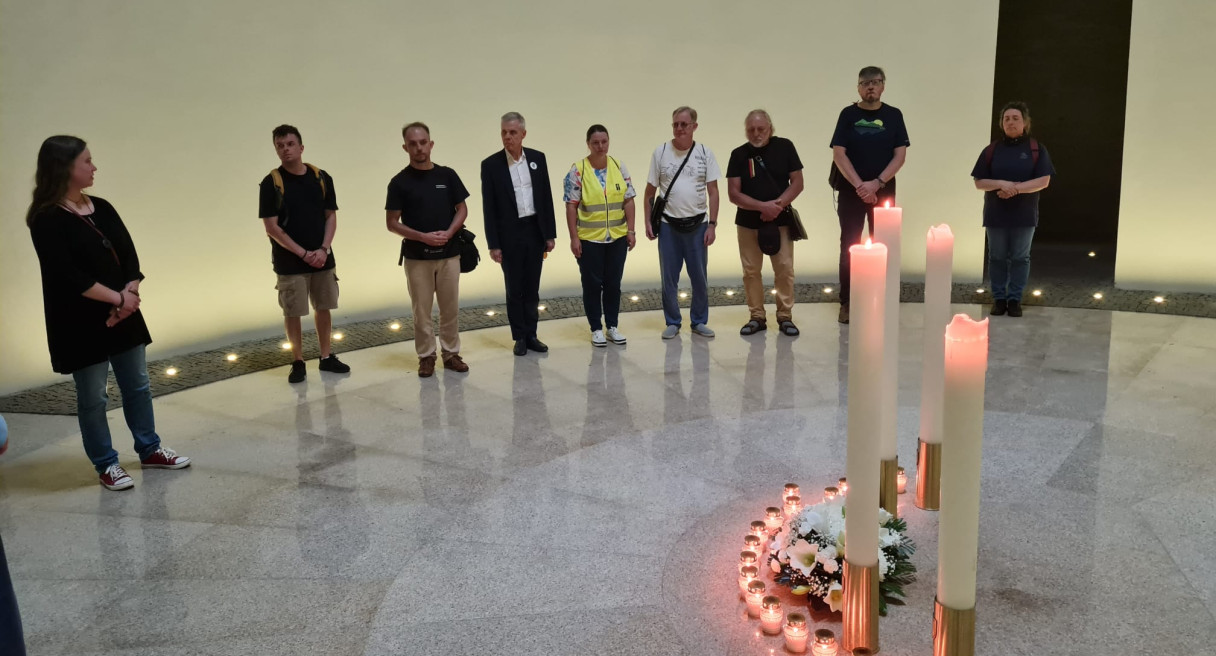
On August 21 our museum’s Public History Department marked the anniversary of the Molotov-Ribbentrop pact by guiding a walk around the Riga old town, stopping at places where the effects of pact were seen in Riga, from autumn 1939 through the first Soviet occupation until the establishment of Ostland in 1941. The tour was led by Museum researcher Pēteris Kalniņš.
Approximately 50 people joined the walk, which began at the museum entrance. The sites were explained in Latvian and in English, and guests included representatives from the Museum of Occupations and Freedom Fights in Vilnius and the Sybir Memorial Museum in Bialystok, which held similar events on August 22 and 24.
We are especially grateful to Dr. Piotr Popławski and Krzysztof Kulling from the Siberian Memorial Museum (Muzeum Pamięci Sybiru) in Białystok, as well as Milda Jarusaitiene (Museum of Occupations and Freedom Fights) and Salvijus Tumelis (Genocide and Resistance Research Centre of Lithuania; Memorial complex of Tuskulenai Peace park) from Vilnius. Thank you to everyone who participated!
Similar events took place on August 22 in Vilnius and August 24 in Białystok. In Vilnius, a memorial peloton – a bicycle ride – took place along a selected route with 12 stops in the center of Vilnius. Each of the stops was related to the Molotov-Ribbentrop Pact or its consequences in Lithuania. LOM researcher Dr. Edvīns Evarts took part in the ride. At the start of the peloton, Dr. Gints Apals, head of the LOM Public History Department, gave a speech and an overview of Latvian historical events. The peloton was about 15 km long.
Dr. Apals also participated in the annual peloton in Bialystok organized by the Siberian Memory Museum, which took place on August 24, 2025. About 50 people participated in this event – employees of the Siberian Memorial Museum, guests from Latvia and Lithuania, representatives of organizations of victims of Soviet repression, and representatives of the local community. The peloton began with speeches and the laying of flowers at the Katyn massacre memorial and ended at the Siberian Museum. The cycling route was approximately 9 km long.
Our cooperation with the Vilnius and Białystok museums takes place within the framework of a memorandum of understanding between partner institutions in Latvia, Estonia, Lithuania, Poland, Ukraine, and Moldova.
